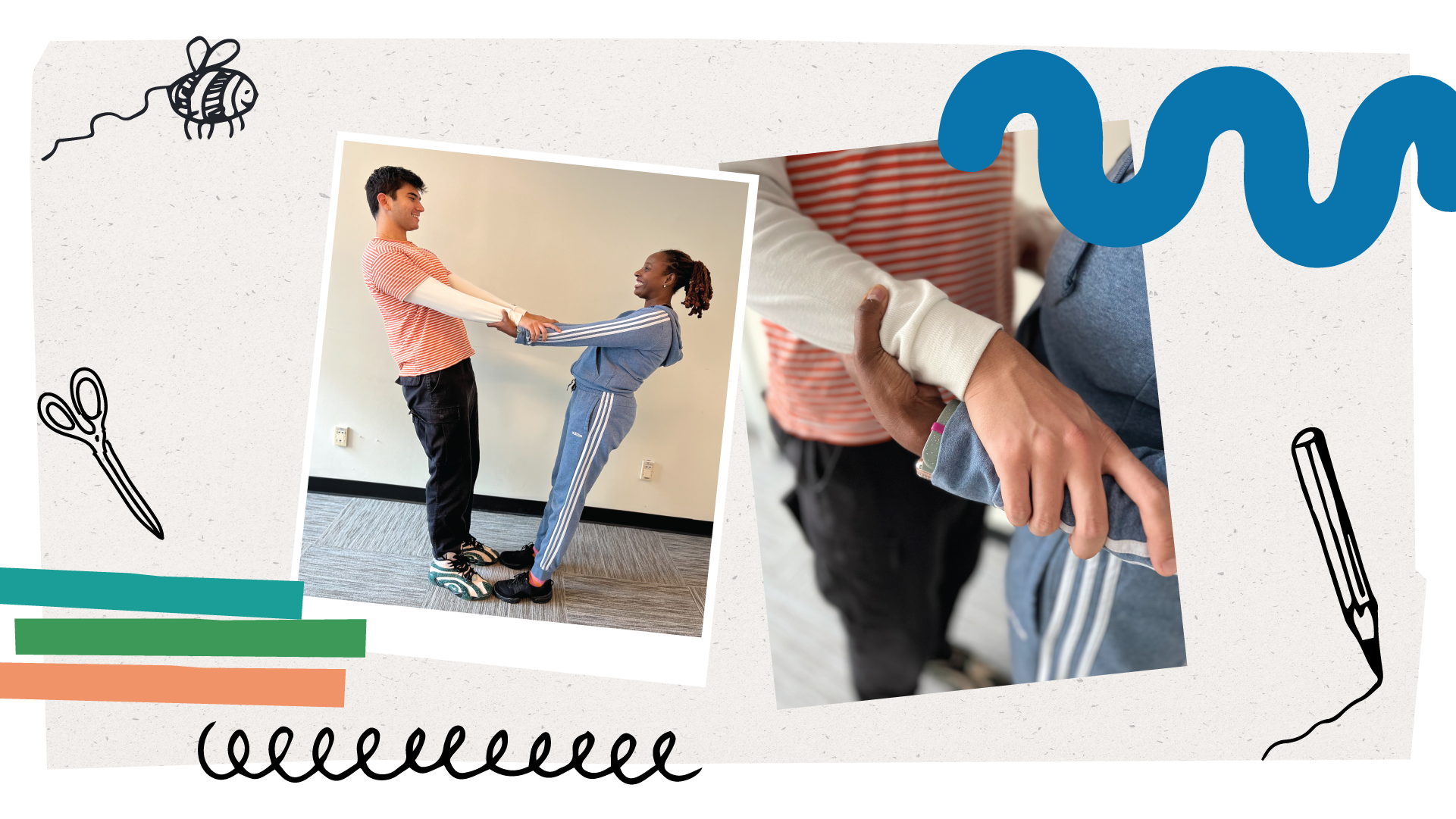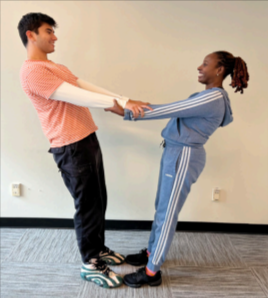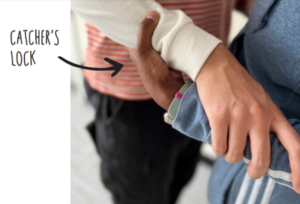Back to Resource Library Download PDF
Download PDFReflection Questions:
Derring-Do with the Greatest of Ease
 Download PDF
Download PDFUse the activity below to begin to explore circus tricks.
Note: Because this activity asks students to make direct physical contact with one another, we suggest beginning each part of this activity with an ask for consent to do so.
No Materials Needed
- To begin, have students partner up! Ask partners to stand facing each other, with their toes touching, holding each other’s wrists in a catcher’s lock.
- Ask students to keep their bodies stiff as boards as partners lean back, still toe-to-toe, until their elbows are completely extended. The partners should look like a “V” shape if done correctly.
- Once partners establish their balancing point, encourage them to release their outside hands, rotating their shoulders outwards and style with the free hand.
- Have partners return their open arms to catcher’s lock position, safely pull themselves back to an upright position and step out of their pose safely.
- Next, invite partners to take things in a totally different direction—literally! Ask them to stand with their backs together so that they feel their shoulder blades pressing into their partner’s shoulder blades.
- Keeping their bodies completely upright, have both students walk their feet away from the center. Encourage students to keep their knees straight as they lean back. Apprehensive students might want to grab hands. If they do, their arms should be straight down by their side. The shape should look like an “A.”
- Celebrate students’ newfound circus talents by encouraging volunteers to show off their skills!
Reflection Questions:
- What did you find most challenging about these two weight-sharing activities?
- How could this activity help build trust and community?
- Why do you think performers might do this type of work in preparation for a performance?
 Words to Know:
Words to Know:
Catcher’s Lock: a move used by trapeze artists in which one partner holds the other partner’s forearm, just above the wrists, to create a strong lock between the two. This is to keep each other safe.
Style: Circus performers end each trick or act with a “style.” This is a pose of one’s own choosing that lets the audience know when to applaud!


 Words to Know:
Words to Know: